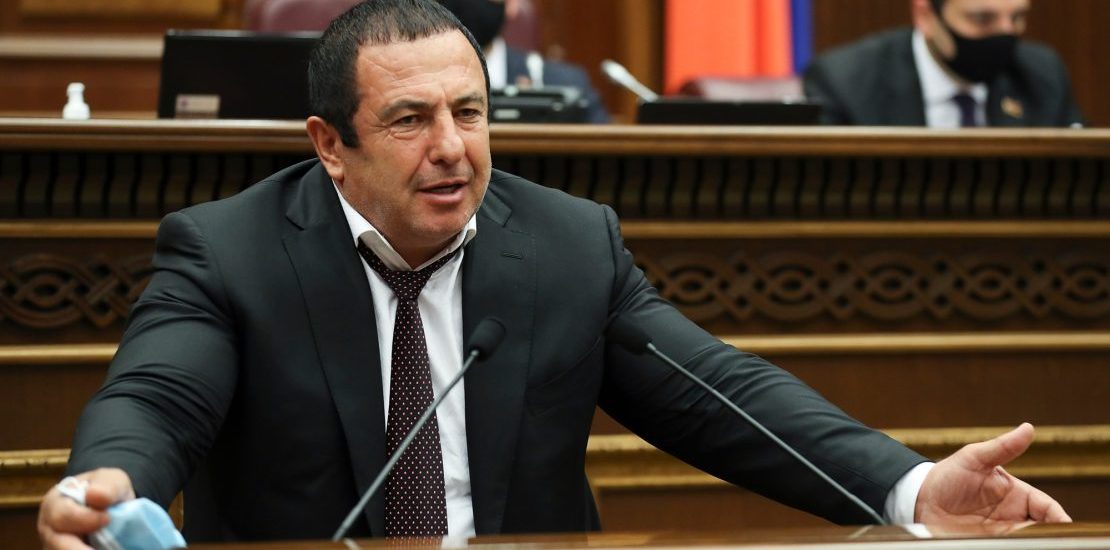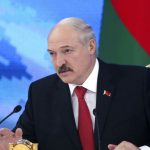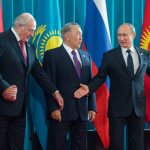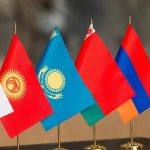- 24 June, 2020
- Eurasian Economic Union

Prosecution of Prosperous Armenia Party leader Gagik Tsarukyan opened a rather interesting point of view on the hitherto unnoticeable nuances of the Armenian-Russian relations.
Tsarukyan’s case
On June 14th, 2020 the officers of the National Security Service of Armenia (NSS) conducted a search in the private house of the leader of the Prosperous Armenia Party (PAP) Gagik Tsarukyan.
According to the NSS, in the companies that belong to Tsarukyan they found violations that have caused billions of drams in damage to the state, as well as evidence of electoral bribes distributed by the Prosperous Armenia Party (PAP) during 2017 parliamentary elections.
Following these revelations, the PAP issued a statement on political persecution, linking the mentioned incidents with Tsarukyan’s criticism of the authorities on June 5th. On June 16th, the National Assembly of Armenia (NA) approved (with 87 votes in favor) the motion filed by the Prosecutor General to deprive Tsarukyan of his parliamentary immunity and to initiate criminal proceedings against him.
The case of Russia
It is noteworthy that Russia began to react quite actively to these internal developments in Armenia.
Thus, on June 17th, when Tsarukyan had already been deprived of his parliamentary immunity, Russian Ambassador to Armenia Sergey Kopirkin met with PAP MPs Mikael Melkumyan and Vahe Enfiajyan. During this meeting, as mentioned in the statement of the embassy, the parliamentarians “shared their vision on some aspects of the domestic political agenda of the host country.”
It is noteworthy that on June 18th, the International Affairs Committee chairmanship of the ruling United Russia party made a statement on the events surrounding the PAP leader.
“Respecting the principle of non-interference in the internal affairs of sovereign states, we hope that the situation around Prosperous Armenia and its leader Gagik Tsarukyan will be resolved in strict accordance with the law, and with respect for political diversity and freedom of public activity,” the statement read.
What is Russia’s concern here?
From the abovementioned, it can be concluded that Russia, in general, is actively responding to Armenia’s internal developments, especially from the point of view of maintaining democracy and the rule of law. However, history shows that the previous political and public events in Armenia have not always received a balanced response from Russia. For example, in 2015, when protests against the rise in electricity prices in Yerevan began, the police used brutal force against many protesters, even using a water cannon.
A number of international organizations have issued statements condemning the violence against protesters and journalists in Yerevan during the “Electric Yerevan” protests on June 23, 2015.
Such statements were made by the US Embassy in Armenia, the European Union Delegation, the British Embassy, the OSCE Representative on Freedom of the Media, Reporters Without Borders, Human Rights Watch, and others. At the same time, the signals from Russia in those days were completely different, and there were no concerns over the violations of the freedom of assembly and speech, freedom from violence, and so on.
Instead, Russian Foreign Minister Sergei Lavrov said that, similar to the Ukrainian Maidan, an attempt was being made in Armenia to “politicize” the demonstrations that were of merely economic nature. Lavrov’s notions, however, as time has shown, were devoid of any basis, and the statement on these events in Armenia was far from being objective and adequate.
The reaction of the Russian side to the mass protests in Yerevan in July 2016 following the capture of the police patrol-guard regiment by Sasna Tsrer group and the disproportionate measures taken by the authorities against the protesters was again ambiguous.
It should be noted that in July 2016, after the capture of the police patrol regiment, a number of large demonstrations took place on Khorenatsi Street and in Sari Tagh district, during which the police used tear gas and light and sound grenades. Many citizens and policemen were injured in the clashes.
In connection with these events, US State Department spokesman Mark Toner stated that he condemned the use of violence for political purposes and called on the Armenian authorities to take a restrained approach to the situation. In his turn, the US Ambassador to Armenia added that Armenians should respect the laws in order to resolve the situation peacefully.
The European Union Delegation to Armenia responded with approximately the same message, condemning the use of force. The EU delegation also called on the protesters to “refrain from violence during the exercise of their civil rights” and condemned the police violations, such as their inappropriate treatment of detainees, as well as their refusal to provide medical care and human rights protection.
In those days, the reaction of the Russian side, in contrast to the American and European partners, was very one-sided, which did not refer to the violation of citizens’ rights during peaceful demonstrations, but only condemned the capture of the police patrol regiment.
Moreover, Russian Foreign Ministry spokeswoman Maria Zakharova stated : “Russia hopes that the Armenian authorities will be able to unblock the situation, release the hostages, conduct a comprehensive investigation into the incident and punish those responsible.” No word or hint was made about the mass violations of human rights in Yerevan in those days.
Turns out it is concerned indeed.
Thus, the rather subtle and quite cautious response of the Russian side to the current situation around the leader of the “Prosperous Armenia” party Gagik Tsarukyan may prompt Russia’s cautionary concerns about the internal political processes and hypothetical injustice in Armenia.
Unfortunately, the thesis of certain injustices in Armenia voiced in terms of concerns by Armenia’s strategic ally can no longer be further developed, as many former Armenian officials, who are being prosecuted in some inexplicably corrupt and criminal cases, are hiding from Armenian justice in Russia.
Vahe Ghukasyan
Union of Informed Citizens


 Հայ
Հայ Рус
Рус


